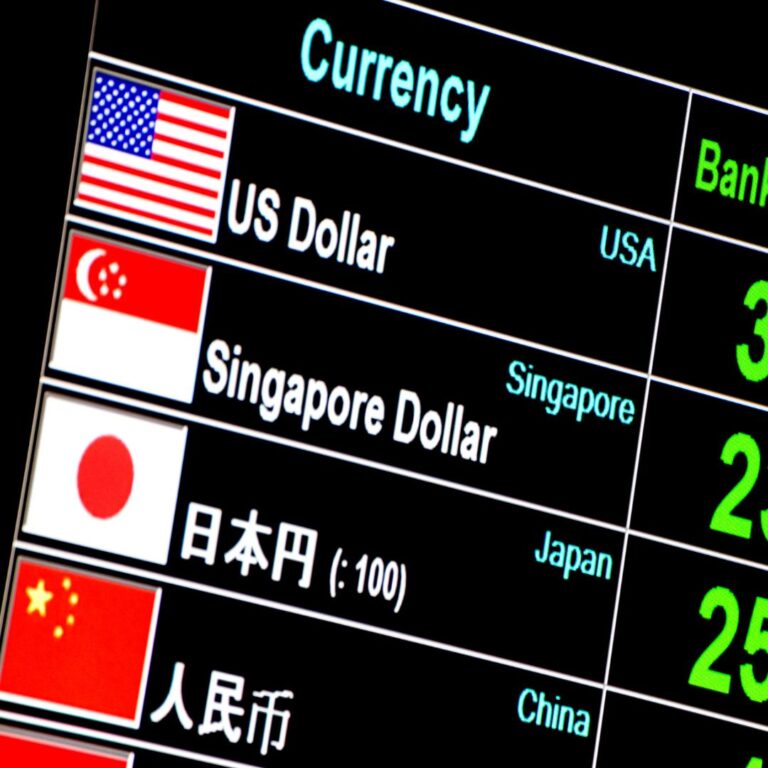Prohibited Kinds of Transactions Part III
Introduction
Part III continues from the previous article, “Some Prohibited Kinds of Transactions Part II” where various prohibited types of transactions in Islamic law are shown. It explains economic principles, such as supply and demand, and highlights unethical trade practices that exploit buyers and sellers. Moreover, this article outlines specific scenarios where transactions are considered unlawful and are supported by Islamic teachings.
| Ustaz Anwar Notes | English Translation | Arabic Text |
| If the items are abundant, the price will go down. If they are scarce, the price will increase. (The law of supply and demand in Economics, whereby if a product has a high demand and low supply, the price will increase. Conversely, if there is low demand and high supply, the price will decrease.) This practice is forbidden because the buyer is taking advantage of the Bedouin. Nowadays, this often happens when a country knows that another state needs certain goods, they will raise the prices to unreasonable levels, such as food prices. | No translation
[self-translated] [Some Prohibited Kinds of Transactions] Prohibited in these scenarios: 1 – A townsman selling to a nomad, when the townsman said to the nomad who brought a commodity, and it is much needed [by the people] in the town: “Do not sell now until I sell it for you bit by bit for a high price” |
[البيوعُ المحرَّمة]: يحرم [البيع في صور]:
١ – أنْ يبيعَ حاضرٌ لبادٍ، بأنْ يقولَ الحاضرُ للبدويِّ الذي قدمَ بسلعةٍ، وهيَ مما يُحتاجُ إليها في البلدِ: لا تبعِ الآنَ حتى أبيعَها لكَ قليلاً قليلاً بثمنٍ غالٍ. |
| For example, buying goods from foreigners at a very cheap price. The buyer told the seller that the goods are unsaleable, so the seller would not increase the price of the goods. It is forbidden because the buyer is deceiving the seller by claiming the goods are worthless. But in reality, they actually have value. So he bought them at a very low price but then sells them back for a very high price. The goods are also not under his ownership as he is just an agent that is supposed to resell the goods. | No translation
[self-translated] When the caravans [group of travellers, typically merchants carrying goods to trade, usually the buyer is local and the seller a foreigner] conduct sale transaction, the buyer informs the seller that their goods are unsaleable, unmarketable so that he can buy from them at a lower price. |
٢ – وأنْ يتلقَّى الركبانَ فيخبرَهُمْ بكسادِ ما معهمْ ليشتريَ منهمْ بغَبْنٍ. |
| When someone wants to buy some goods but someone else has already bought them first. We then raise the price so that we can purchase the goods from the seller. For example, person A is selling fish for $12. Then person B comes and says “I will buy from you for $15.” This action is forbidden because it causes problems am ong people. Person B should not interfere with the sale agreement by offering a higher price to buy the goods from person A, after they have already agreed with the buyer to sell fish for $12. | It is unlawful to undercut a brother’s deal
(A: or a non-Muslim’s, since there is no difference between Muslims and non-Muslims in rulings concerning commercial dealings) that he has made with a customer, after they have settled on the price (excludes someone going around taking bids from those who are increasing them, as auctioneers do, which is not unlawful). |
٣ – وأنْ يسُومَ على سَوْمِ أخيهِ، بأنْ يزيدَ في السِّلعةِ بعدَ استقرارِ الثمنِ. |
| This is similar to the example above, except that the scenario is more specified towards the buyer. For example, when the buyer has already bought the goods, person B comes to the buyer and says “You return the goods, I will sell the same items to you but at a lower price”. | It is also unlawful to undercut a brother’s price
(0: that is, during the option to cancel at the time of the agreement or during a stipulated option to cancel period) by telling the buyer, “Cancel the deal and I’ll sell you one cheaper.” (0: This also hols for other contracts, such as renting or lending the use of something.) |
٤ – وأنْ يبيعَ على بيعِ أخيهِ، بأنْ يقولَ للمشتري: افسخِ البيعَ وأنا أبيعُكَ بأرخصَ منهُ. |
| In this scenario, an individual sees someone purchasing some goods, but he said to the seller that he will buy them at a higher price. For example, the other person offers $15. Then this individual comes and says he will purchase them for $18. The other person then offers to buy for $20. Not wanting to back down, this individual again says that he will buy the goods for $22. He actually has no wish to purchase the goods nor intends to use them, but wants to deceive the buyer and cause detriment or harm. | It is unlawful to bid up the price of a piece of merchandise that one is not really interested in, to fool another bidder. | ٥ – وأنْ ينجُشَ بأنْ يزيدَ في السلعةِ وهوَ غير راغبٍ فيها ليغرَّ بها غيرَهُ. |
| Selling grape juice to someone who will buy it to make alcoholic beverages is unlawful. Since the ruling on selling alcohol is unlawful, if we sell grape juice to such people, then we are also aiding the sellers in committing wrongful acts. According to Imam Al-Ghazali, one of the Persian-Tajik thinkers, weapons should not be sold to a robber and grapes to a winemaker. In essence, it is impermissible to sell goods if you know that the buyer will use them to cause harm. | It is unlawful to sell grapes to someone who will make wine from them.
(0: Like grapes in this is the sale of dates, bread, wheat, or barley, whenever one knows that this (A: i.e. alcoholic drink) will result, or thinks it will. If there is doubt or if one merely imagines it, then the transaction is merely offensive. (N: Think (zann) means to believe it probable, doubt (shakk) means one is undecided, and imagine (wahm) means to merely consider it possible.) |
٦ – وأنْ يبيعَ العنَبَ ممنْ يتخذهُ خمراً. |
| These kinds of sale transactions are considered legally valid and acceptable under Islamic law, as they satisfy the conditions needed for a sale transaction in Islam [see notes on episode 190]. However, they are forbidden and unlawful because these actions cause harm to the society. | Selling in such cases is unlawful or offensive because it is a means to disobedience, whether certain or suspected
(A: means meaning an instrumental cause, as opposed to something which is not instrumental, such as renting a house to a drunkard, which is not unlawful because it is not a cause, though it is unlawful to rent a building to someone who intends to open a bar, for example). Tirmidhi relates that the Prophet (Allah bless him and give him peace) cursed whoever drinks wine, gives it to others to drink, sells it, buys it, presses it for another, transports it, receives it, or eats its price.) If one makes any of the above unlawful transactions (k4.6-9), the agreement is valid |
فإنْ باعَ في هذهِ الصُّورِ كلِّها المحرَّمةِ صحَّ البيعُ. |
| In this scenario, there are two transactions, one is valid and the other is not. For instance, when someone says “free my servant and my friend’s servant”. The first part of this statement is valid, where the person wants to free his own servant. However, the second part is invalid, because he does not have the right to free someone else’s slave without his permission. This example can also be applied to selling other items in this day and age. | If one combines something valid to sell with something invalid to sell in one transaction, such as selling one’s own slave together with someone else’s slave without his permission,
* Translated from ‘garment’ to ‘slave’ |
[تفريقُ الصفقةِ وتعددها]:
وإنْ جمعَ في عقدٍ واحدٍ ما يجوزُ وما لا يجوزُ، مثلَ عبدِهِ وعبدِ غيرهِ بغيرِ إذنهِ، |
| Selling wine is unlawful but vinegar is allowed. For example, you sell both items at $10 each and earn $20 from the sale. However, only $10 earned from selling vinegar is considered lawful, whereas the other $10 is unlawful due to the nature of the good being sold. | or such as selling wine and vinegar, | أوْ خمرٍ وخلٍّ، |
| Referring to the example above, only $10 is lawful because the item being sold is permissible in Islam. Whatever is unlawful would not be considered as a valid transaction. | then the transaction is valid for the portion of the price that covers the valid sale
(0: no matter whether the person knew what the case was, or whether he did not and believed the sale permissible, thinking at the time, e.g. that the wine was vinegar) |
صحَّ فيما يجوزُ بقِسطِهِ منَ الثمنِ، |
| So the sale transaction involving wine is considered unlawful, and the agreement will be invalidated. | and is invalid for the portion of the price that was not valid (A: and the portion must be refunded to the buyer). The buyer has the option to cancel the whole agreement if, at the time the deal was made, he did not know it included something inpermissible. | وبطُلَ فيما لا يجوزُ، وللمشتري الخيارُ إنْ جهلَ الحالَ. |
Conclusion
In conclusion, this article highlights the prohibited transactions in Islamic law and emphasizes fairness and ethical trade. This ensures that business transactions are honest and just and that deception and exploitation are avoided.
Written by Maryam Binte Aziz for notes on ‘Episode 190 – Some Prohibited Kinds of Transactions Part III: Undercutting Another’s Deal, Bidding Up Merchandise, Selling Grapes to a Winemaker, A Valid Sale Combined with an Invalid Sale’.
Edited by Nafisah Yusra Binti Abdul Rahim








